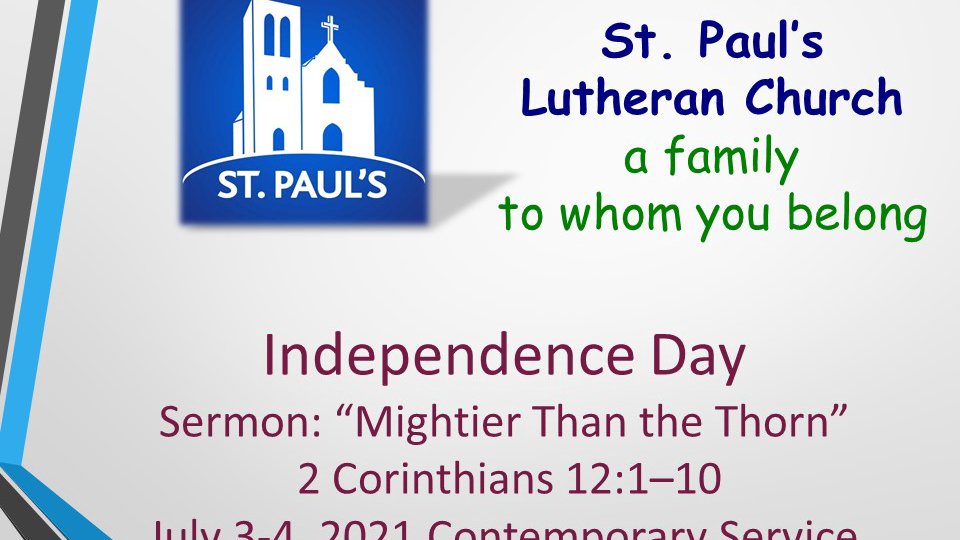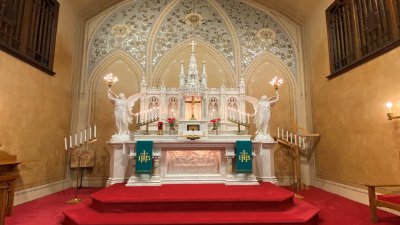Today, our nation celebrates its place as the land of the free and the home of the brave. At times, this reality causes us to thump our chest to let the world know how great we are. The apostle Paul, too, could claim his place among the greats. Paul was “circumcised on the eighth day, of the people of Israel, of the tribe of Benjamin, a Hebrew of Hebrews; as to the law, a Pharisee; as to zeal, a persecutor of the church; as to righteousness, under the law blameless. But whatever gain I had, I counted as loss for the sake of Christ” (Philippians 3:5–7). Yet, he was not mightier than the thorn. As Paul followed Jesus, he was plagued by a thorn in the flesh to keep him from becoming conceited. He asked God to take it away, and God said, “My grace is sufficient for you, for My power is made perfect in weakness” (2 Corinthians 12:9). So, too, God’s grace is sufficient for us no matter where this life takes us, because when we are weak, then we are strong.

07/04/2021 Contemporary Service
“Mightier Than the Thorn” 2 Corinthians 12:1–10
July 4, 2021 • Rev. Kenny Hsu
04/21/24 Traditional Service
April 21, 2024
One of the small but interesting features of many cathedral and monastery churches in Europe and other places is presence of misericords. A misericord is a small wooden shelf attached to the underside of a folding seat in a church, often in the choir area. Misericords physically supported people at worship during long periods of standing during extended prayer and other services when sitting was not permitted. The term “misericord” means “pity of the heart.” That word is part of the church phrase Misericordia Domini, a Latin term for describing the acts of mercy of God to His people. Jesus, the Good Shepherd, constantly and consistently shows acts of mercy to us as His people. His care comes straight from the heart!
04/21/24 Praise Service
April 21, 2024
One of the small but interesting features of many cathedral and monastery churches in Europe and other places is presence of misericords. A misericord is a small wooden shelf attached to the underside of a folding seat in a church, often in the choir area. Misericords physically supported people at worship during long periods of standing during extended prayer and other services when sitting was not permitted. The term “misericord” means “pity of the heart.” That word is part of the church phrase Misericordia Domini, a Latin term for describing the acts of mercy of God to His people. Jesus, the Good Shepherd, constantly and consistently shows acts of mercy to us as His people. His care comes straight from the heart!
04/14/24 Praise Service
April 14, 2024
AS WE GATHER “Amazing” is a commonly used word in the English that has a rich history. It came into common usage in the 14th century as a variant of the older root word “amasod,” which meant stupefied or confounded or overwhelmed with sudden surprise or wonder. The word “amazing” shows up several times in hymns that we sing—from describing the action of God in the birth of Jesus as “love amazing” (LSB 375:1) to bringing to our hearts and minds that in His suffering to pay the price of our sins, our Lord showed “amazing pity” (LSB 437:2). Two other hymns refer to the “amazing grace” of God (LSB 744:1; 558:2), and in another hymn, the author of the text rejoices that God “has done amazing things to me” (LSB 934:2). The season of Easter is a time for us to be truly amazed and filled with the praise of our amazing Lord!





